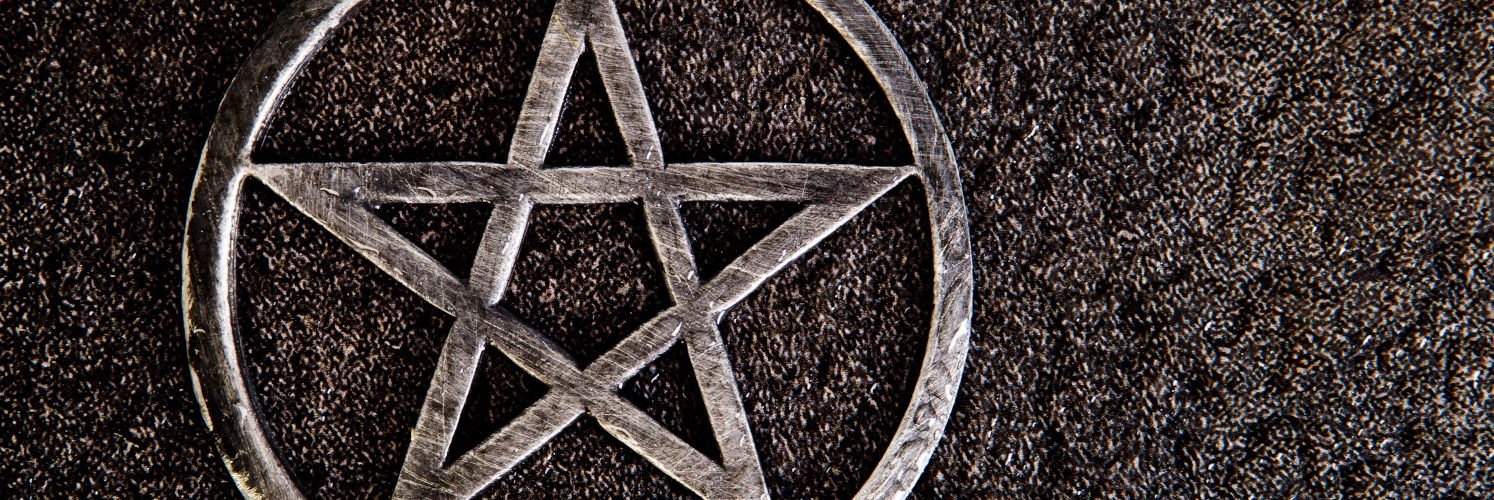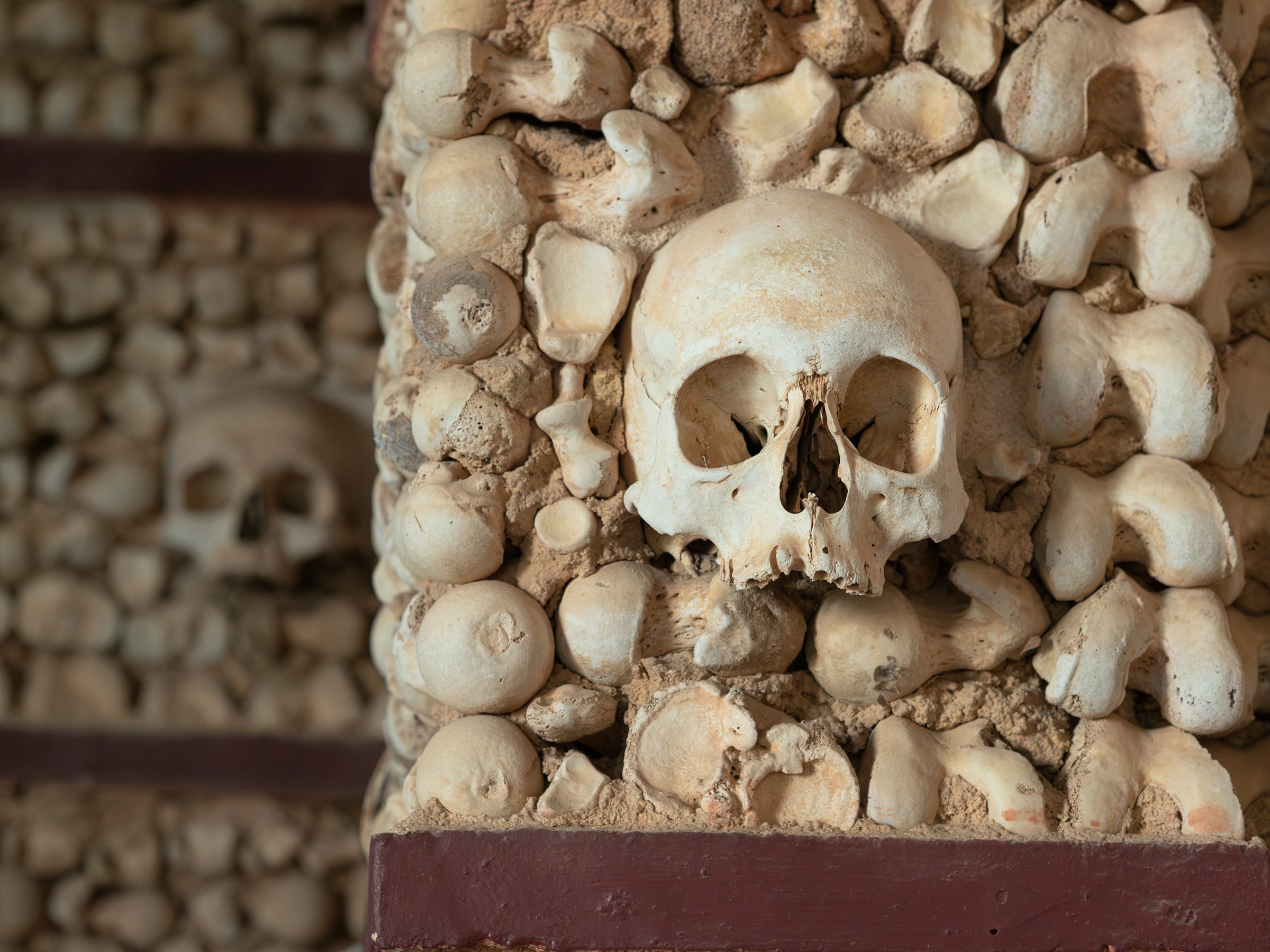Ancestor veneration can be a tricky subject for the newcomer. Whether you’re new to the Craft or just new to the concept of incorporating ancestors into your practice, it can be a challenge. First of all, not everyone knows their biological ancestors. And not everyone has nice ancestors. In fact, most people have some assholes in their family tree. But the important thing to remember about ancestor veneration is that it isn’t just about blood. The ancestors are more than biology. They’re also social and spiritual. Also, you get to choose who you venerate. You choose whose memories you keep alive and whose you don’t, and that’s a powerful thing. When the Veil is thin at Samhain, it can be a good opportunity to reach out to some of your ancestors and ask if they’d like to be remembered by you. Some will say yes and others will say no, but those who say yes will form the base of your ancestor veneration practice.
For myself, I didn’t give much thought to ancestor veneration until my apprenticeship with Susan Stoddard, who had been a witch longer than I had been alive and who pointed out to me that the dead still have a lot of influence in the world of the living. Many conversations with her changed my view on the nature of life and afterlife, and my own experiences with ghosts expanded my thinking on their agency, motivations, and capabilities. It has been my personal practice for several years to feed my ancestors at each dark moon and to prepare a feast for them at Samhain. I also maintain an ancestor shrine with pictures and objects related to my ancestors. This serves both as a connection point to them and a repository of power when I need their assistance with life or magick. But these practices didn’t develop all at once. Rather, they developed gradually as I worked more and more with my ancestors and they told me what they desired or required. There have been times when I’ve fallen short, and those have been the times when my ancestors have reminded me of the promises I’ve made to them. Some ancestors have departed from my presence over time and others have appeared, but most of them are the same ones that I first made contact with years ago.
Before beginning a formal ancestor veneration practice for yourself, it’s important to understand who the ancestors are, what they’re like, and how to contact them.
The Nature of the Ancestors
When I refer to “the ancestors”, I’m not referring to a collective voice or a homogeneous group, although the ancient ancestors from thousands of years ago are generally more collective and more homogeneous. Rather, I’m referring to a category of entity, namely those human spirits who have died and who seek to continue to continue to influence the world of the living. Much like gods or spirit guides, these entities have agency and choose who they wish to help.
What I’ve learned about the bond between a person and their ancestors is that it’s cooperative — it’s a two-way street. The ancestors need a living person to remember them, to enliven them, to work their will in the world. And a living person needs the ancestors to center them, to empower them, to guide them, and to help them fulfill the legacies of the ancestors and leave their own legacy for those who come after them.
The ancestors are a vast repository of knowledge about life, and they’re also experienced in practical matters. Some ancestors can tell you why your bread’s not rising. Others can tell you how to heal a broken heart. Still others can tell you what magickal process to use to empower a new coven. In return, they often ask that you feed them through offerings or work their will in the world. Some may have been great lovers of music and want you to support the arts through donations and volunteerism. Others may have been magickal practitioners and want you to preserve the Craft. Still others might want you to make one specific treat for them from one specific recipe. What your ancestors want will depend on their own preferences and motivations.
It’s also been my experience that the ancestors, while they do have the perspective of coming to us from the spirit world — Heaven, the Summerland, or wherever — with all the clarity about the nature of life that implies, they are still very much human personalities. They have likes and dislikes. They have opinions. They have flaws. Sometimes those things aren’t pretty. That’s because the part of the soul that we contact when we reach out to an ancestor is the part that lived in and experienced this world as a limited being. The extent to which those spirits gain perspective after death is variable, and it’s unreasonable to expect that someone who was meanspirited or bigoted in life will be very different after death. Sometimes they are, and sometimes they’re willing to talk about the things that made them meanspirited or bigoted and the insights they have now about it. But it’s better to not place the expectation of enlightenment on someone who may not want it, be ready for it, or serve in that role. Some ancestors exist as a cautionary tale rather than a paragon of virtue.
Identifying Your Ancestors
Your ancestors are more than your biological predecessors. I’ll say it again. Your ancestors are more than your biological predecessors. While it is true that there is magic in having a connection with your bloodline, it does not mean that you have to know or like your parents, grandparents, and great-grandparents. You are the result of countless generations of reproduction. That in itself is powerful.
Your ancestors are the people who raised you, the people who mentored you, the people who went before you in life. Your favorite uncle is your ancestor. Your best friend’s dad is your ancestor. Your hugely inspirational high school teacher is your ancestor. If they were part of your life and they are now dead, they’re your ancestor.
Your ancestors are also those who went before you in the Craft. In Wicca, we have the Mighty Dead. Technically, anyone who is dead and who has a cult of memory is among the mighty dead — think Marilyn Monroe, Princess Diana, JFK, and Elvis — but in Wicca, the term specifically refers to those witches who have gone before us. We have Dafo (Edith Woodford-Grimes), Scire (Gerald Gardner), Ameth (Doreen Valiente), Robat (Raymond Buckland), Verbius (Alex Sanders), and Artemis (Eleanor ‘Ray’ Bone). We also have those who practiced the Craft before Wicca as a religion existed, such as Isobel Gowdie, Ursula Southeil, Catherine Monvoisin, James Murrell, and George Pickingill. If you’re in a specific tradition, your lineage may have members who have passed who are now among the Mighty Dead. All of these people are ancestors. It’s up to you — and them — to decide whether they are among the ancestors you venerate.
First Contact With Your Ancestors
Contacting the ancestors for the first time is easiest at Samhain because the veil between this world and the spirit world is thin and people are focused on the spooky and otherworldly, but it can be done at any time of the year. Remember, the ancestors are spirits who want to continue to influence the world, so they are already remaining close by. I recommend making first contact in a cast circle to avoid troublesome spirits who may be roaming. Actual contact can be made with an invocation similar to how one calls the quarters or the divine into circle. I always begin mine, “Ancestors, you who have walked the path before us, you whose blood flows in our veins and whose spirits enliven ours.” Envision a portal opening in the northwest of the circle and admitting those spirits that you have specifically named or who are well disposed toward you.
An offering of water is customary for working with the spirits of the dead, but some spirits prefer soda, beer, or liquor. Start with water and ask the spirits what they prefer. My ancestors prefer a cup of water and a shot of whiskey. Ask them what offering they would like you to feed them with. My ancestors prefer a meal that has bread, meat, and root or gourd vegetables, but for everyday remembrances they enjoy candles lit to them or a cigarette.
Next, let them know that you’re seeking their assistance and ask how you can help them in return. Depending on how you communicate with spirits, you may receive your answer verbally or through feelings or impressions. Pay attention for things that surprise you. Some requests from the spirits may be simple; others may not be. Some may be unreasonable. Be open and honest about what you can do, what you think you can do, and what you can’t do. Some ancestors may choose not to work with you, and that’s perfectly alright, but many will choose to work with you. Those are the ones you’ll want to venerate in regular practice and build relationships with. Thank them for their attention, invite them to leave if they so choose, and close your circle.
Beginning Regular Veneration
Once you’ve made contact, it’s important to keep your commitments to the spirits. A witch is only as good as their word, and most ancestor spirits have strong feelings about honor. Make some sort of space for ancestor veneration in your home. This doesn’t have to be a huge multi-tiered ancestor altar with candles and incense lit at all times. Mine is a book-sized wooden box that I’ve decorated with symbols that enhance my connection to the ancestors. When I give offering, I set the offering on top of the box on my altar.
I also have a special plate and cup that I use just for ancestor offerings. It comes from my dish set, but it has symbols marked on it that separate it from the regular dishes. It was important to me that it not be a fancy dish or one that was visually different from the ones I eat off of because my ancestors are a part of my family and, really, I’m just an ancestor in training. We are all just ancestors in training. If you’re feeding your ancestors offerings of food, consider having a place setting reserved just for them.
Regular contact is essential when working with the spirits. I dedicate the dark moon to working with ancestors, just checking in and seeing what wisdom they have to offer and asking if there’s anything I need to do for them, but it’s best to find out what is going to work best for your practice. Some people prefer weekly contact with their ancestors. Others may only focus on ancestor workings a few times a year. Figure out what works for your practice, then incorporate it a little bit at a time. Build up to the sort of practice you want, because it can be intimidating to start everything at once.
As far as where to start, take some time now to consider what you want out of ancestor work. What sorts of ancestors do you want to focus on? Familial? Social? Spiritual? What do you bring to them that might aid them in their desire to influence the world? What are you willing to do to help them? And how are you going to incorporate their presence into your life and your practice? Once you’ve thought about things, start crafting a ritual to make contact and begin your ancestor veneration practice. There’s no time like the present.

